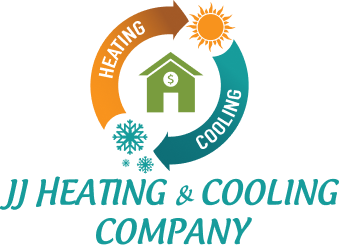By now, you’ve likely heard that heat pumps offer fantastic energy efficiency. They’re so efficient that they’re hardly comparable to any other HVAC system type. If you’re unfamiliar with how they work, you may even view their purported efficiency skeptically. However, what the high-efficiency heat pumps achieve is very real. Here’s everything you need to know about heat pump efficiency and what makes it possible.
How Efficient Are Heat Pumps?
Heat pumps are, hands down, the most efficient HVAC technology available today. In fact, they’re the technology that drives the most efficient heating and cooling solution: geothermal HVAC. However, when you see the term heat pump mentioned in an HVAC context, it typically means something more specific. It usually refers to air-source heat pumps. They share similar mechanics to conventional central AC systems. They’re also available in ductless mini-split varieties.
A modern air-source heat pump can have a coefficient of performance (COP) as high as 4.5. In real-world terms, that means a system that operates at up to 450% efficiency. For comparison, the most efficient gas furnace only reaches about 98.5% efficiency. It’s important to note, though, that heat pump efficiency varies depending on the outdoor temperature. In real-world use, some heat pumps use inefficient electrical strips to provide heat when the temperature drops below 40 degrees Fahrenheit. In these cases, the COPs average between 2.5 and 3 across a heating season. However, cold-climate heat pumps, which maintain their efficiency when the temperatures drop below 0 degrees Fahrenheit, are available.
How Heat Pumps Achieve Their High Efficiency
At first glance, the efficiency figures above may look too good to be true. After all, how can a heating system be more than 100% efficient? The secret that allows heat pumps to break that efficiency ceiling is that they don’t generate heat. They only move heat from one place to another. In the case of an air-source heat pump, all the heat comes from the outdoor air. As a result, their efficiency measures how much electricity they use to move each heat unit. By contrast, a gas furnace uses combustion to produce heat. As a result, a furnace can never be more efficient than 100%, even in a perfect system.
At this point, you’re likely wondering how a heat pump manages to find heat in the outdoor air on cold days. That’s where understanding the underlying science of heat pumps comes in handy. Heat pumps are mechanically similar to air conditioners and refrigerators. All three use a refrigerant to collect heat in one place and carry it elsewhere. The reason they can do this is the scientific fact that heat energy always moves from warmer substances to colder ones. Heat pumps simply operate in reverse to double as heating systems.
In heating mode, a heat pump uses an expansion valve to lower the pressure on its refrigerant. Doing so also reduces the refrigerant’s temperature and boiling point. The process continues until the refrigerant reaches a temperature lower than the outdoor air. In some systems, the refrigerant gets as cold as -15 degrees Fahrenheit or lower. The cold refrigerant then travels through a heat exchanger in the heat pump’s outdoor unit. Simultaneously, a fan blows outdoor air across the heat exchanger. Once the refrigerant absorbs enough heat energy, it boils into a warm gas.
Next, the heat pump uses its compressor to ramp up the pressure on the now-warm refrigerant. In doing so, it amplifies the collected heat. When leaving the compressor, the refrigerant will have reached between 120 and 140 degrees. That’s more than hot enough to heat your home. The refrigerant passes through another heat exchanger indoors while a blower fan runs to release its heat indoors.
In the summer, the process reverses. Cold refrigerant absorbs heat from the inside of a house; it’s compressed until it reaches a temperature hotter than the outside air, and then a fan blows the radiant energy into the cooler outside environment.
Local Heat Pump Experts
For over a decade, JJ Heating & Cooling Company has offered quality HVAC services in Gambrills, MD. We’re experts in the field with over 20 years of collective industry experience. We offer HVAC installation, repair, maintenance, and comprehensive indoor air quality services. So, if you want to upgrade your Gambrills home to a heat pump, contact JJ Heating & Cooling Company immediately!



